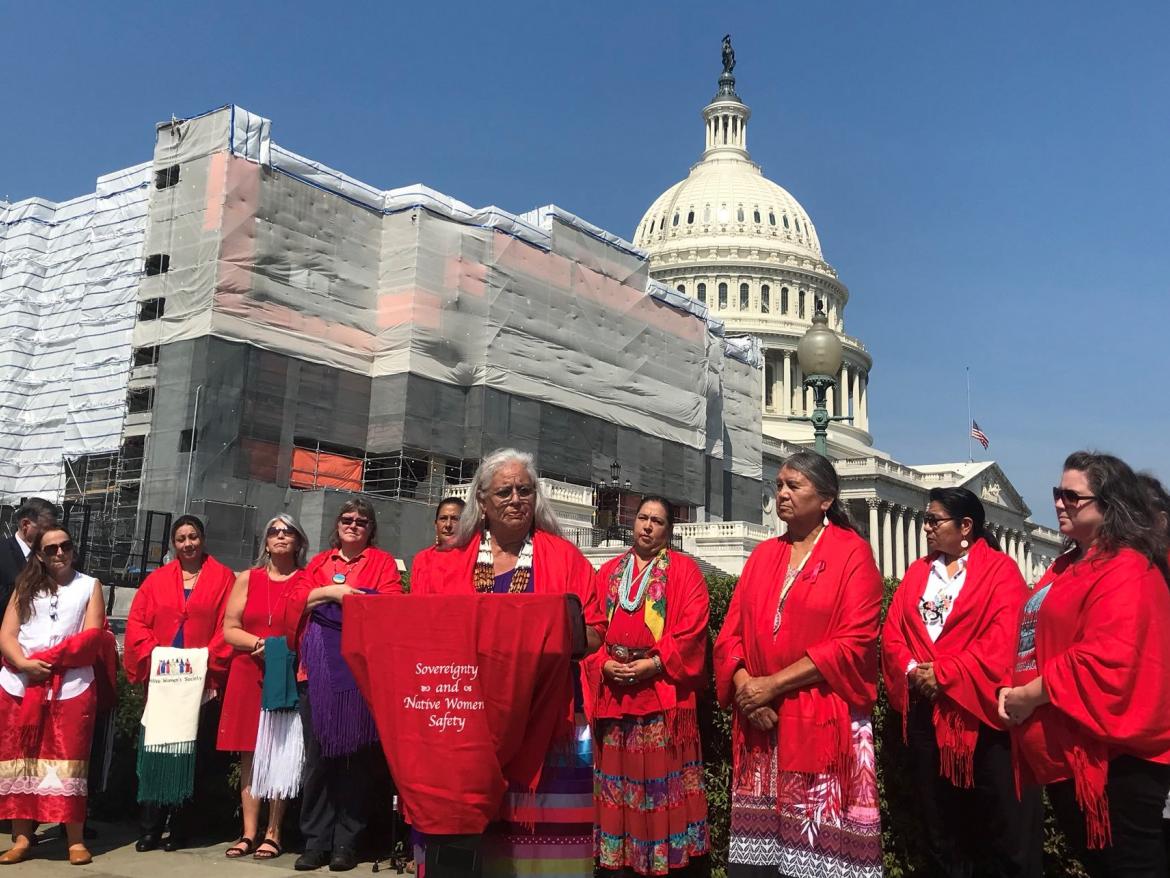The Friends Committee on National Legislation (FCNL) is one of a few faith-based groups that lobbies with and for Native Americans on issues affecting their communities. Through the years, FCNL has developed a credibility that enables it to provide Congress with unbiased insight and information about the issues that affect indigenous peoples in the United States.
There are currently 573 federally recognized tribes in the United States, as well as many other Native communities still fighting for recognition. Since the tribes are so culturally and geographically diverse, their needs and challenges vary greatly—but they are making strides in building a better future.
Historically, FCNL’s Native American Advocacy Program is based on consultations and building connections among these tribes, tribal organizations, and non-Native allies. For example, in the 1970s, FCNL’s Native American policy work was based largely on the results of a series of regular consultations by a group equally composed of tribal leaders and representatives of yearly meetings.
In 2017, FCNL launched the Native American Congressional Advocacy Program, which trains young advocates. The term of FCNL’s Advocating with and for Native Americans first Native American congressional advocate, Lacina Tangnaqudo Onco (Shinnecock/Kiowa), is ending, and her successor, Kerri Colfer (Tlingit), is continuing her work. Although the program continues to keep an eye on issues that FCNL worked on in the past, the program has recently focused on missing and murdered Indigenous women (MMIW). The main legislative vehicle for FCNL’s focus this year is the reauthorization of the Violence Against Women Act, originally passed in 1993 with the help of FCNL and Native advocates.
Kerri Colfer (Tlingit), a lawyer, highlighted two new issues that could impact Native American efforts in building a better future for their communities today: advance appropriations for essential services and the impact of climate change.
Tribes are speaking out about the federal government’s trust responsibility to provide for their wellbeing as sovereign nations and their ability to grow and prosper—not merely exist. When the United States government shuts down, as it did December 2018-January 2019, Native Americans are among the most severely affected. Many tribes depend on federal funding for health programs, and when the U.S. government shuts down, it prevents them from paying employees. It forces tribes to allocate funds from other essential areas of tribal operations and services in order to make up for the lack of federal funding.
“As a result, tribes are often unable to make important improvements to their facilities, budget properly, or retain employees,” Colfer said.
Native American advocates are asking Congress to ensure that federal agencies like the Indian Health Service receive advance funding to help them avoid the harmful impact of government shutdowns. On Sept. 25, 2019, the House Subcommittee for Indigenous Peoples held hearings on two bills—the Indian Programs Advanced Appropriations Act (H.R. 1128) and the Indian Health Service Advance Appropriations Act (H.R. 1135). FCNL is following this issue closely.
Native American advocates are asking Congress to ensure that federal agencies like the Indian Health Service receive advance funding to help them avoid the harmful impact of government shutdowns.
Colfer said that, if passed, these bills would provide advance funding that will allow tribes to not only meet their basic needs, but also create dynamic and strong economies.
Tribes, especially those located in coastal areas, are expected to be disproportionately impacted by climate change in the coming years. Many tribes depend on local natural resources for their subsistence and economy. That is why Native people have long been at the forefront of climate change initiatives, despite contributing very little to the problem. Over the past few years, FCNL’s climate program has repeatedly emphasized this connection.
On July 25, 2019, Fawn Sharp, president of the Quinault Indian Nation, testified in front of the House Committee on Natural Resources on the devastating impact climate change is having on the tribe’s land and economy. Increased rainfall and rising sea levels are flooding their coasts, and they will have to move one of their villages to higher ground at the cost of as much as $200 million.
“Despite these new challenges, tribes continue to build for a brighter future, bringing with them the shared values and traditions they have always held dear,” Colfer said.
To support FCNL’s advocacy on behalf of Native Americans, Nebraska Yearly Meeting Friends established a Native American Fund in 1993. In June 2019, the FCNL Education Fund received a generous endowment gift of $385,000 from an anonymous donor that brought the principal of the fund to $500,000. This endowment will help guarantee the long-term sustainability of the Native American Advocacy Program.
